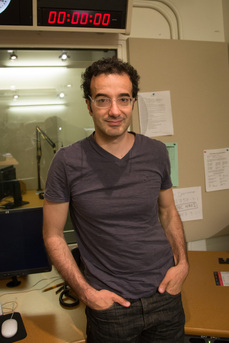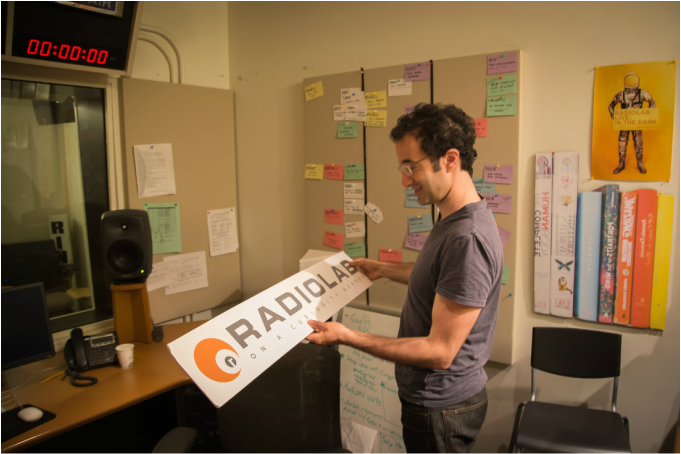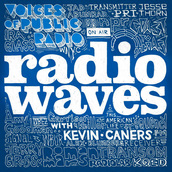
Highly produced and full of intricate soundscapes, Radiolab was more like a series of films than a regular broadcast radio show - something hit home by the fact that the program only produced (and still only produces) about 10 or so full length episodes a year.
But even though when it was first being distributed there weren't even programming slots on most stations that would lend themselves to such a periodically produced show, through its captivating explorations of science and philosophy, Radiolab quickly managed to carve itself out a space on stations across the country and a sizeable legion of fans to go along with it. In fact within a couple of years, not only had Radiolab found a place for itself in the radio landscape, arguably it had helped to usher in a new golden age of the form.
More than any other program in recent memory Radiolab showed what could be achieved with the medium of radio, and encouraged others to try to push the envelope of using sound in the service of storytelling. It inspired an entire generation of up-and-coming radio producers to take creative risks and experiment.
As Ira Glass put it in a glowing letter of appreciation, Radiolab “invented a new aesthetic for the medium.” And the program has been hailed everywhere from The New York Times to The Guardian for its thought-provoking pieces, unique sound, and overall approach to storytelling.
 Jad Abumrad in the Radiolab Studio
Jad Abumrad in the Radiolab Studio But what most sets Radiolab apart for me is not its innovative sound design, but rather its sense of imagination and ability to deal with big questions of philosophy, life and science in a manner that is relatable, and in a way almost visceral. It walks the line between being both serious and playful, incredulous and earnest. It merges multiple worlds, makes connections, and zooms in and out from the tiny to the universal. With Radiolab one moment you might be contemplating the life of an ant, and the next peering over the edge of space trying to conceive of the infinite. The result is that as the listener you're often left in a state of wonder, and contemplative ambiguity about the large mysterious world around you by the end of the program.
Today, almost 10 years since it emerged on the scene, Radiolab is of the most downloaded podcasts in the world and is broadcast on more than 450 NPR member stations across the country.
I had the chance to speak with Jad at WNYC about the birth of the show, his life growing up in relatively undiverse Tennessee as an Arab child, and the bumpy unpredictable ride (with ample servings of self-doubt and failures along the way) he took to end up as one of the most inventive minds in modern radio.
Listen to our interview with Jad Abumrad below, and To hear more of our conversations with the voices of radio, subscribe to the Radiowaves podcast in iTunes.
"For me, walking into journalism was a way of realizing that if you find the right questions to ask, you can suddenly stumble into moments of wonder" - Radiolab's Jad Abumrad





 RSS Feed
RSS Feed